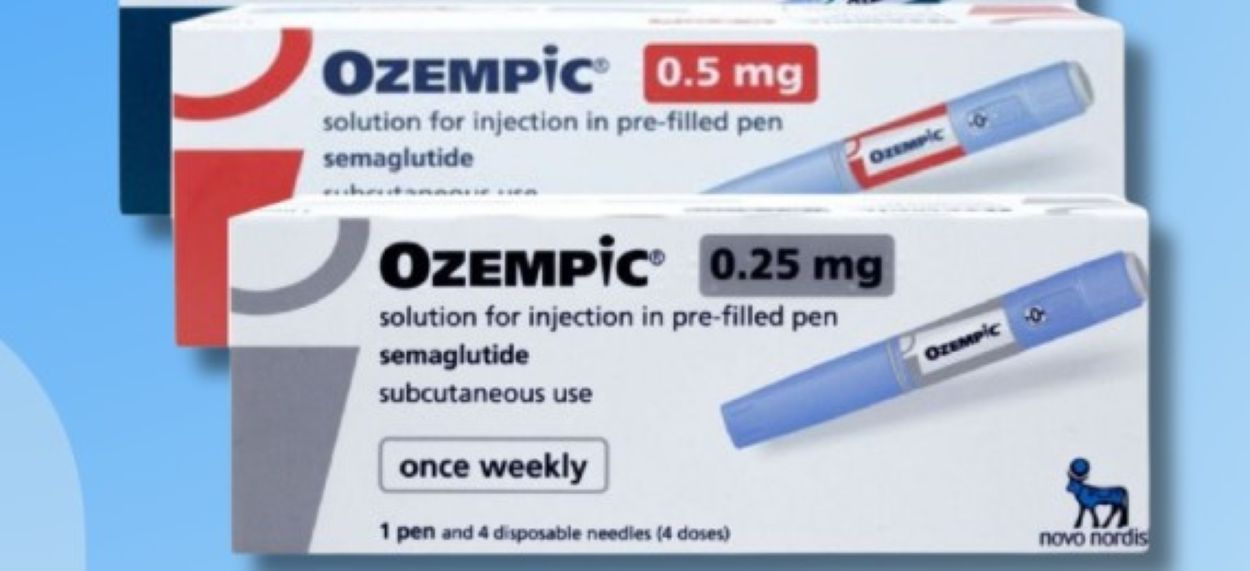A landmark international clinical trial has revealed that Ozempic (semaglutide), widely used for type 2 diabetes and obesity, significantly reduces liver inflammation and fibrosis in patients with metabolic dysfunction-associated steatohepatitis (MASH), a severe fatty liver disease.
Published in the New England Journal of Medicine, the Phase III ESSENCE trial is the first regulatory-level study to demonstrate a treatment’s potential to halt and reverse MASH-related liver damage, offering hope for millions of affected people worldwide.
Groundbreaking Results from the ESSENCE Trial
The ESSENCE trial, conducted across 253 sites in 37 countries, enrolled over 800 adults with MASH, a progressive condition marked by liver inflammation and scarring that can lead to cirrhosis or liver cancer. Led by Professor Philip Newsome of King’s College London and Professor Arun Sanyal of Virginia Commonwealth University, the study compared weekly 2.4 mg Ozempic injections to a placebo over 72 weeks, alongside lifestyle interventions like diet and exercise counselling.
Results were striking: 62.9% of Ozempic-treated patients achieved reduced liver inflammation, compared to 34.3% on placebo. Additionally, 36.8% showed improved liver fibrosis (scarring reduction) versus 22.4% in the placebo group.
The trial’s diverse cohort, with 75% obese and over 50% with type 2 diabetes, also experienced significant weight loss (averaging 8-10% of body weight), lower liver enzyme levels, and improved metabolic markers like blood sugar control.
The diabetes and weight loss drug semaglutide reversed signs of the liver disease MASH, results of a new clinical trial show.https://t.co/LF0eoC4aUO
— Science News (@ScienceNews) May 4, 2025However, gastrointestinal side effects, including nausea, diarrhoea, and abdominal discomfort, were more frequent in the Ozempic group, affecting about 30% of participants compared to 15% on placebo. These side effects, typically mild to moderate, align with Ozempic’s known profile as a GLP-1 receptor agonist, which mimics a hormone to regulate appetite and insulin.
MASH and MASLD: A Growing Global Concern
MASH, part of metabolic dysfunction-associated steatotic liver disease (MASLD), affects approximately one in five people in the UK and an estimated 25-30% of adults worldwide, driven by rising obesity and diabetes rates. MASLD ranges from simple fatty liver to MASH, which can progress to life-threatening conditions. In the US, MASH is a leading cause of liver transplants, with no licensed treatments currently available. The ESSENCE trial’s findings position Ozempic as a potential game-changer, addressing an urgent unmet medical need.
Ozempic’s mechanism, which promotes weight loss and reduces liver fat by enhancing insulin sensitivity and suppressing appetite, likely contributes to its efficacy in MASH. The trial’s success builds on earlier studies showing semaglutide’s benefits in non-alcoholic fatty liver disease (NAFLD), MASH’s precursor. Still, ESSENCE is the first to meet regulatory standards for advanced liver disease outcomes.
Future Research and Regulatory Path
The research team plans to monitor 1,200 patients over five years to assess Ozempic’s long-term safety and efficacy, particularly its ability to prevent progression to cirrhosis or liver failure. Novo Nordisk, Ozempic’s manufacturer, is preparing to submit trial data to regulatory bodies like the FDA and EMA, aiming for approval as a MASH treatment by 2026. Experts caution that while promising, Ozempic’s cost (approximately $1,000-$1,500 monthly without insurance) and side effect profile may limit accessibility, necessitating further research into affordable alternatives.
Ozempic’s breakthrough in the Phase III ESSENCE trial, reducing MASH inflammation and fibrosis in 62.9% and 36.8% of patients, respectively, heralds a new era in treating severe fatty liver disease (masld). With MASLD affecting one in five UK residents, this advance offers hope for halting a growing health crisis. As long-term studies and regulatory reviews progress, Ozempic could redefine liver disease management, transforming lives worldwide.






